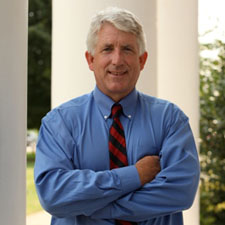
Closing the gap will allow prescribers to avoid dispensing opioids to people who are also receiving treatment for opioid addiction. Herring and 32 of his fellow state attorneys general made the request in a letter to Health and Human Service Secretary Sylvia Burwell submitted as a comment on a pending regulatory action.
“We know that prescription opioid abuse is a problem in and of itself, but unfortunately it also sets many Virginians on a path toward the cheaper, potent heroin they seek from the streets when they can’t get prescription drugs,” said Attorney General Herring. “Our Prescription Monitoring Program has to be a part of the solution, and we’ve made some good progress in recent years to expand its scope and increase its usage, but current federal law creates a loophole where a prescriber may not be aware they are providing opioids to a person who is currently in treatment and may be at high risk of relapse into active addiction. Frankly, this rule is dangerous and it keeps doctors and pharmacists from getting a complete picture of the person they are treating.”
Federal law currently keeps methadone clinics from participating in PMPs, which are statewide programs that collect patient-specific data on various controlled prescription medications, like highly addictive opioids. In their bipartisan letter, Herring and 32 of his colleagues call on HHS Secretary Sylvia Burwell to address the gap by revising the proposed Confidentiality of Substance Use Disorder Patient Records regulation to require methadone clinics to submit their dispensing data to state PDMPs.
Virginia’s PMP has operated for more than a decade. Mandatory registration for prescribers and pharmacists has increased participation from about 26,000 health care professionals to around 70,000, but the query rate still lags far behind at about 9%. A new state law taking effect July 1 aims to boost usage of the PMP by requiring prescribers to query the database for an opioid prescription treatment plan lasting longer than 14 days, and allowing a doctor to delegate the querying responsibility to another healthcare professional working under their supervision.
PMPs aid in the care of patients with chronic conditions and help identify persons engaged in high-risk behavior, such as doctor shopping and prescription forgery, indicating possible abuse of or dependence on controlled substances. The database matins strict confidentially and access is limited to authorized users such as prescribers, pharmacists, and regulatory boards. These programs are valuable tools to improve patient safety and health outcomes.
“Bringing methadone clinics into the PMP will reduce inappropriate prescribing, as well as the misuse and abuse of opioids, and allow individuals dealing with addiction to receive more comprehensive, safe and effective treatment,” said Herring.
Attorney General Herring has made combating the heroin and prescription opioid epidemic a top priority, attacking the problem with a multifaceted approach that includes enforcement, education, prevention, and legislation to encourage reporting of overdoses in progress, expand the availability of naloxone, and expand access to the Prescription Monitoring Program. In the last year and a half, Attorney General Herring and his team have worked with local and federal partners to prosecute more than 28 cases against dealers and traffickers involving more than 95 kilograms of heroin, or approximately 238,500 daily doses, with an estimated street value of more than $19 million.
His office has also created a documentary called “Heroin: The Hardest Hit” which features Virginians sharing their own stories of addiction, overdose, and recovery. It also includes stories of young people who lost their lives to a fatal heroin overdose.










